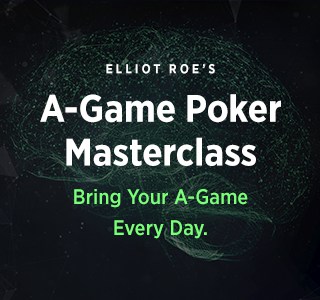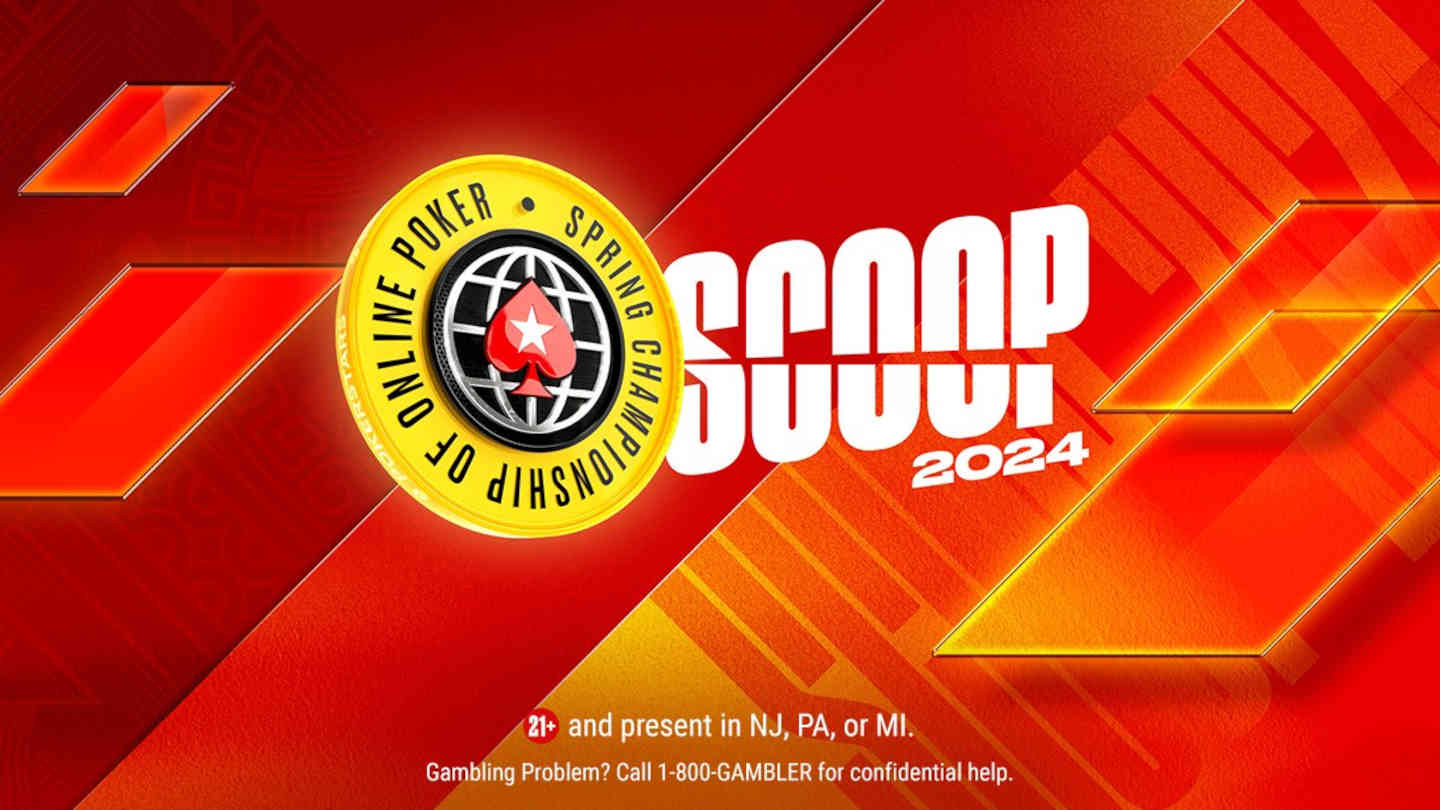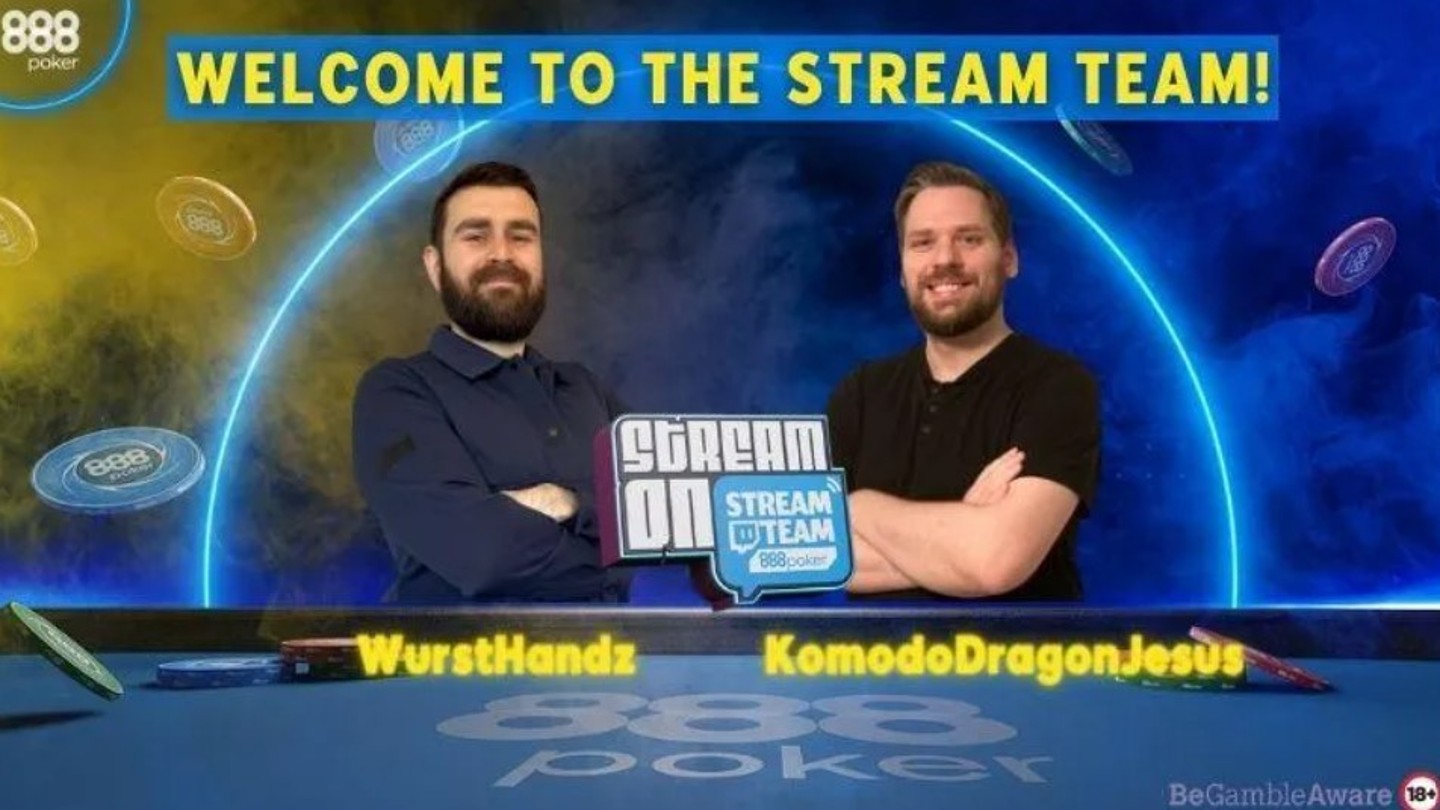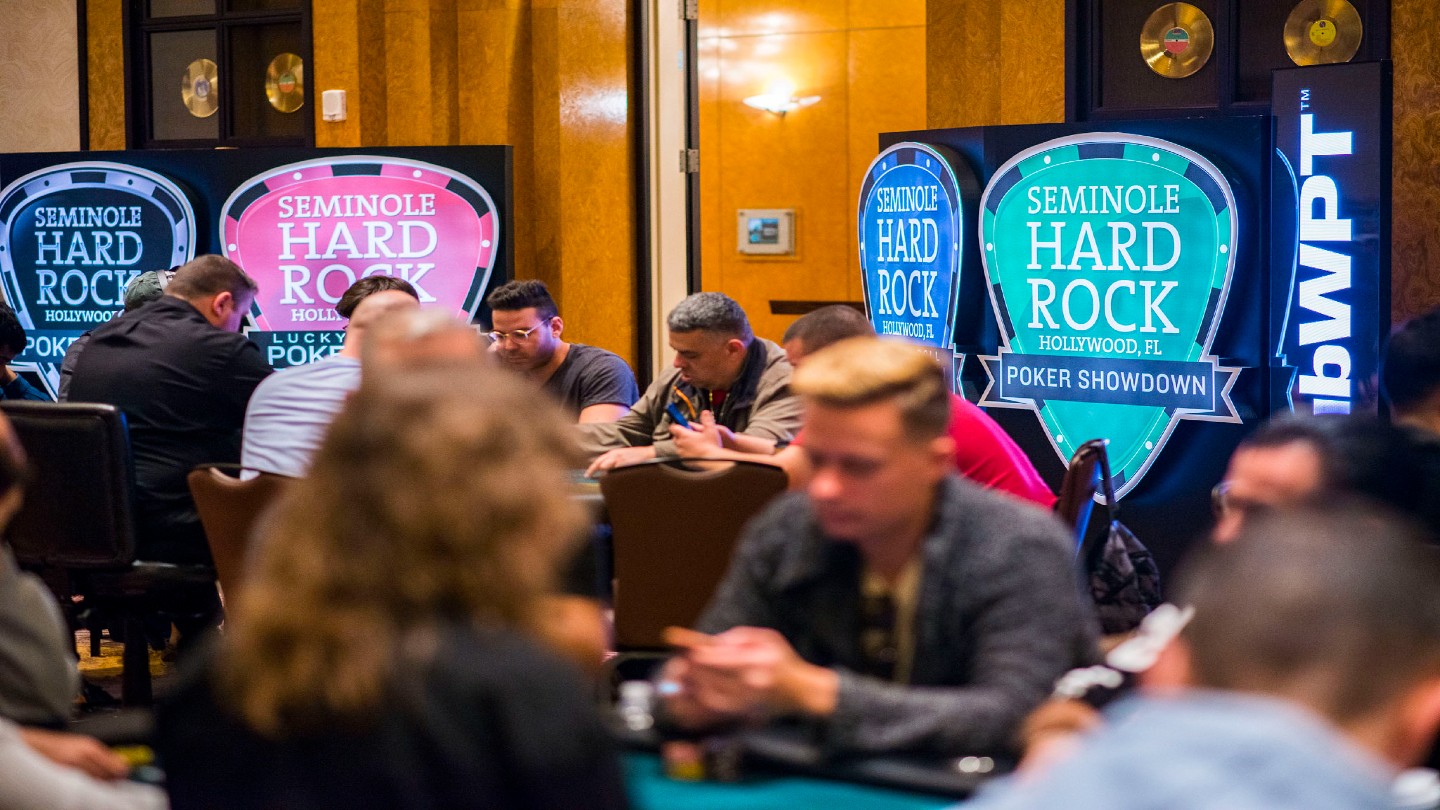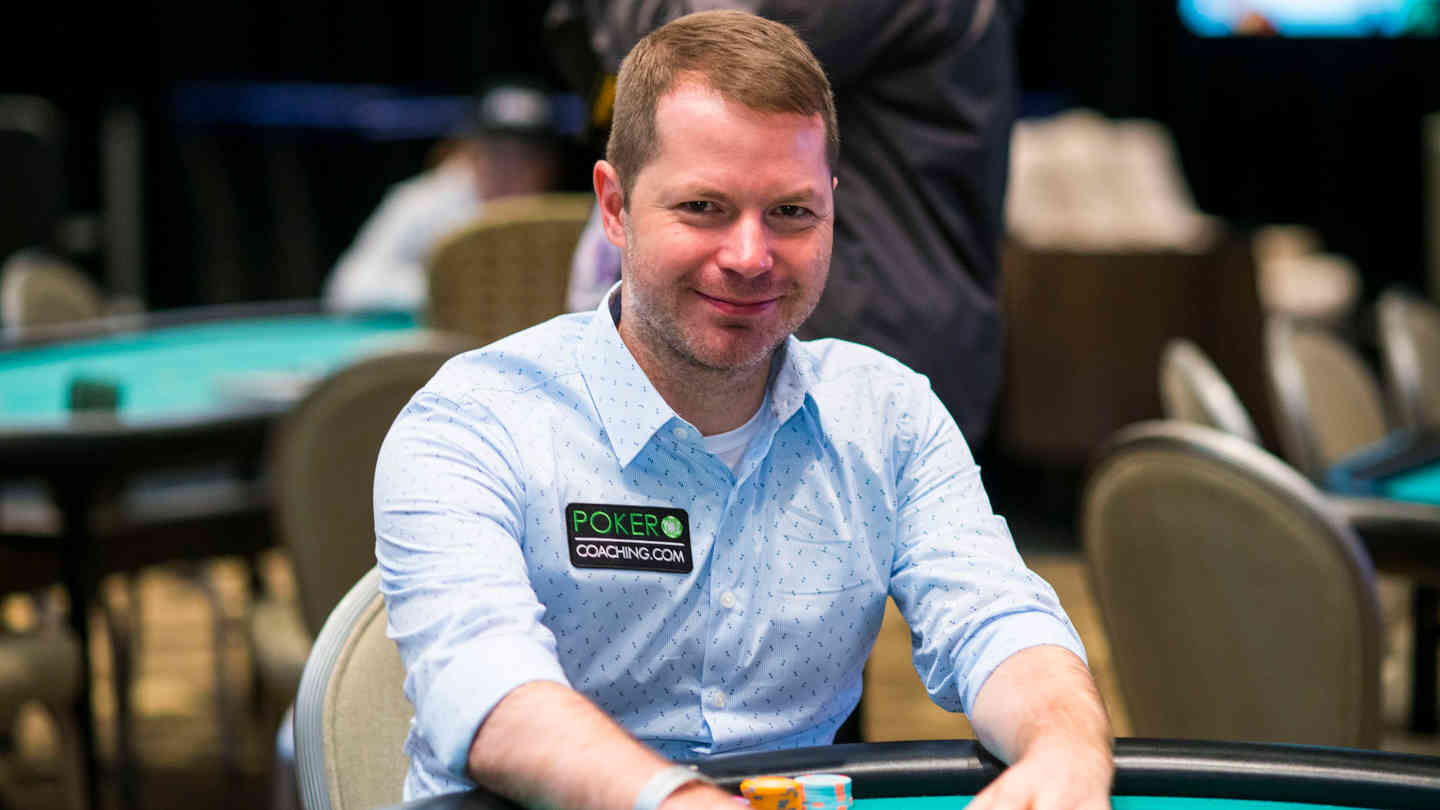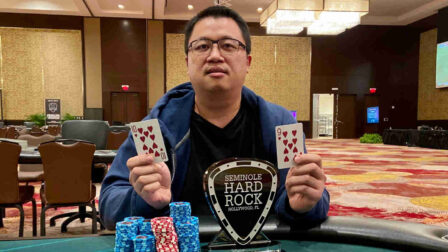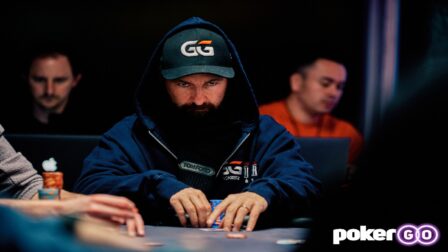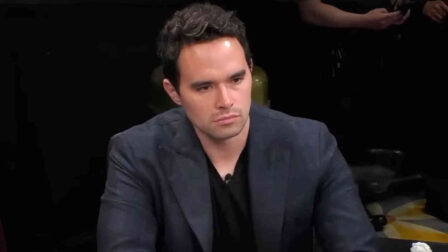Elliot Roe Interview – How To Build Winning Poker Habits That Last
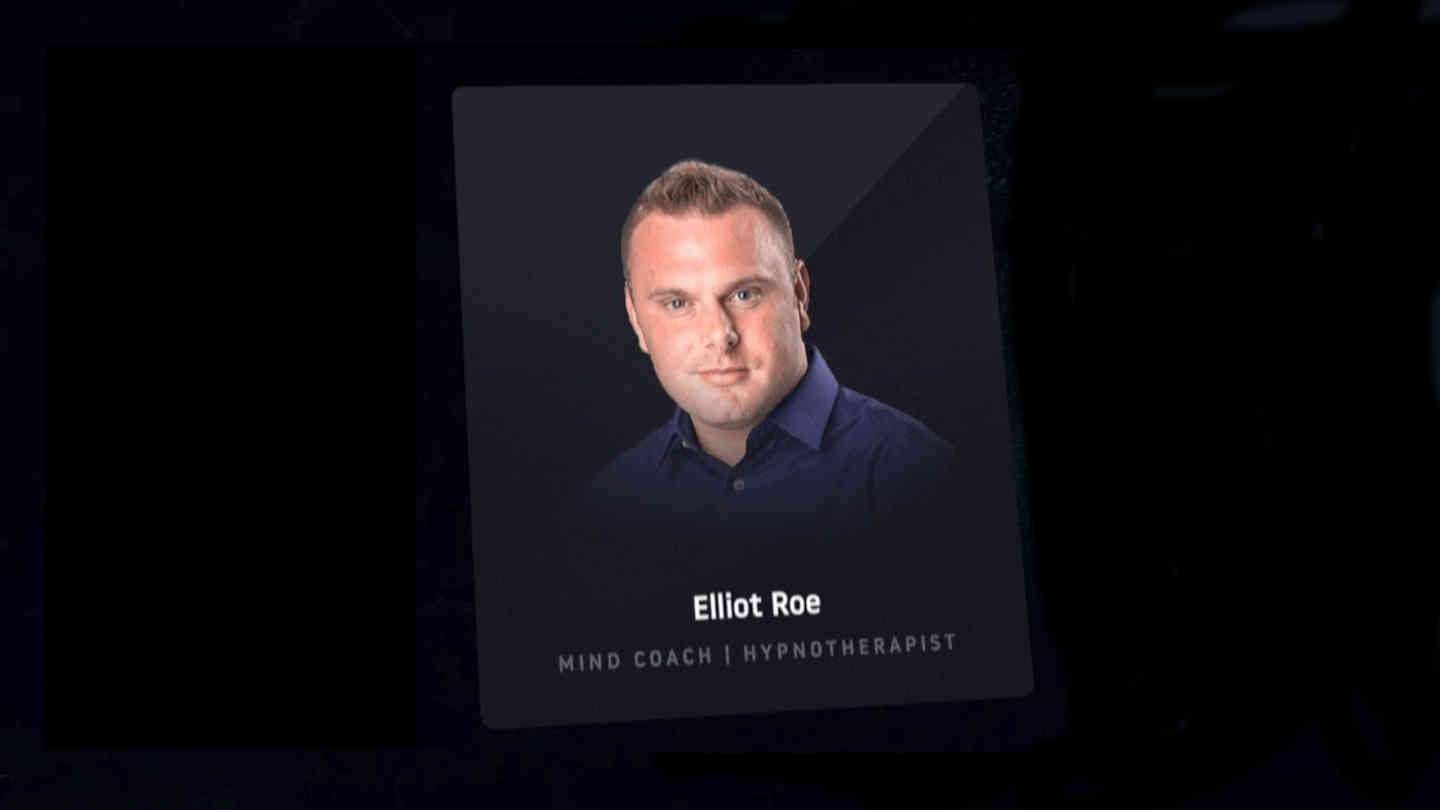
35 minutes
Last Updated: March 18, 2024
Elliot Roe Interview – How To Build Winning Poker Habits That Last
Perform Like a Champion With Elliot Roe Poker Tips
If you do not know who Elliot Roe is, you have probably been living a bit under the rock for the last year since he became the main force in the poker world in regards to mindset and performance.
Jokes aside, Elliot is a leading poker mindset coach and hypnotherapist who have worked with top poker players in the world and helped them achieve stunning results.
I just had a pleasure to do this Elliot Roe interview, where we talked about his journey, success with poker players, and he agreed to share tips about building prober habits, controlling the mindset, and how to master concentration to perform at your best.
To be honest, this was one of the best and most useful conversations I ever had, so take advantage of this opportunity and sink in Elliot's knowledge.
We recorded this interview in a video format, but it does have some interruptions due to a poor internet connection, so you might want to read the text if that starts bothering you. That being said, I am also adding a video in this article, so you can choose which option is better for you.
Elliot Roe Interview
Hey Elliot, it is a pleasure to chat with you and to this interview. Today I want to talk about building better habits and improving the mindset since I believe this can help many players to have better results, and getting tips from you is like a shortcut.
But before we start, I just want to make sure players know who you are and what you do, so maybe you can take a minute to introduce yourself?
Elliot Roe: So my name is Elliot Roe, and I'm a performance coach and hypnotherapist.
I've worked in poker for over ten years, helping players work through self-sabotaging, focus, and anxiety issues at the table.
And I've been fortunate enough to work with a number of the best players in the world. So Fedor Holz, Alex Foxen, Brian Rast, Phil Galfond, and the list go on and on.
It's been an incredible decade where I've seen the guys in the MTTs cash over 80 million dollars, and cash games players crushed the highest stakes cash games in the world.
So it is nice to see how that side of the market, that side of poker, has taken mindset so seriously in the last decade.
Seeing the results that happen when someone gets their mind in the right place, and they also have the technical ability is impressive.
Obviously, you have to have the technical ability as well. You can't just be working with a mindset coach to see the results that happen. If someone has skills and learn to stay focused more, it is a sort of edge that comes in the game.
All the results from your clients look pretty impressive, but I know there is more than that. You also launched mindset training App called Primed Mind, you introduced A-Game poker masterclass, you have your own podcast, and simply put, help people to be the best versions of themselves. How all of this start?
Elliot Roe: So after a pretty extraordinary run by Fedor Holz, he wanted to be able to share my services with everyone.
And that's where we came up with the idea of Primed Mind, which is an iPhone and Android app that you can download to your phone.
It has over 200 audios that you can listen to with a decent number of them being poker related. I think there are around 30 poker audios that you can listen to prepare yourself for the sessions, to deal with bad beats or work through tilt.
You can try it for free and then there's sort of different packages depending on what you need.
That is definitely useful stuff, and we'll touch that a bit deeper later on. But let‘s talk a bit more about hypnotherapy itself. I heard you have a very inspiring story of how you started working in this field, can you share it one more time?
Elliot Roe: Yeah, of course. So I'm a hypnotherapist, which is a bit of a strange job, but it is not a career I was expecting to have.
To begin with, I had a fear of flying, so I would be sort of uncomfortable for around a week before I would get on a flight. Even if it was just short-haul, it could ruin my holiday.
When I was on vacation, I'd be spending time worrying about getting on the plane to go home, and I have actually refused a number of regular trips just purely because of the flight fear.
Then someone recommended going to a hypnotherapist for it, and she managed to cure it in an hour, which absolutely blew my mind.
And it was the logic of how it worked, which was the most interesting to me.
When you go into the hypnotherapy session, you get very relaxed. It's nothing like in the shows on stages, you just feel like you're meditating.

Image from Unsplash
When you are in the session, memories start to come up from the past. And I had a memory come up with me being a very young child, being shown a picture of a plane at my grandfather's house and being told that his business partners died on the plane.
It's not shocking that because I've been shown that as a young child, I then believed that planes were very dangerous, and I placed that in my memory.
But the interesting part of it is that it wasn't something I actually remembered. It only came up during the hypnotherapy sessions, and we worked through it.
Then I spoke to my mom, and she confirmed that it was a real thing that did happen, so I was getting this secondary evidence afterward.
So a memory I wasn't aware of came up, we were able to overcome my irrational fear, and I feel completely different about flying. So for me, that was a really huge, huge moment.
I just realized that I want to learn hypnotherapy because of that.
Initially, I wasn't expecting to be a hypnotherapist. I thought I would just learn it so that if friends or family had anxiety or other issues, I could help fix it. So just a fun skill to have.
Later on, I started working with friends and family, and then they began recommending their friends as they got the results. Those people started recommending other people, and this is how it all began.
At some point, it reached the stage where it became more sensible for this to be my career than anything else because I really enjoyed doing the work. So I decided to take the step.
Wow, that really sounds amazing, man. It is even hard to believe that you can fix such an issue in a one-time session.
Elliot Roe: And in all honesty, that's not very common, and it usually takes a few sessions to cover one issue. But it's generally not very many sessions with hypnotherapy, and it all depends on the problem.
The bigger the fear, the easier it is to find out the reason behind it.
So for someone's just slightly uncomfortable with something, it will be harder to find out what is causing the problem than when somebody is terrified. So the more significant the issue is, the bigger the emotional response you will have, and typically, the easier it is to find the resolution. So, I was very scared of flying.
But is it one session, two or three – it doesn't change much if you can fix these things, it's life-changing. However, the first time I heard about hypnotherapy, to be honest, I was quite skeptical because I didn't realize what it was. So maybe you can explain what it actually is and how it works, so people understand what we are talking about.
Elliot Roe: Unfortunately, when people hear hypnosis or hypnotherapy, they usually think about TV shows or the guy on stage. Hypnotherapy is nothing like that.
You know, I can't tell someone to dance, and they start dancing like in on stage shows. The work that I do is much closer to a guided meditation.
If we are talking about traditional meditation, you try to get into a very relaxed state, a very calm state and look to clear your mind as thoughts came up. If thoughts come up, you let it go and clear your mind. If a thought comes up again, you let it go and keep doing that while meditating.
With hypnotherapy, we're using that same very relaxed state to focus intensely on one thing.
So it's actually just extreme focus. And as you extremely concentrate on one particular issue, your subconscious opens up, and you're able to find out the reasons behind that issue in a way you wouldn't be able to understand in the normal conversation.
Just like I was describing in the session that I had, it brought up memories that I wasn't consciously aware of.
That is the amazing part for me because it helps you fix issues that you did not even know you had.
Elliot Roe: Exactly. And this is where it's interesting when compared to other talking therapies because I could have gone to a typical therapist, and it might have taken a very, very long time for that to come up because it wasn't even a conscious memory.
Whereas in hypnotherapy, you are basically asking subconscious where is this coming from? If your subconscious has a big emotional response to something, it knows where it's coming from.
Otherwise, your subconscious wouldn't be responding in that way. It's just following a program inside you.
So hypnotherapy sort of allows you to hack into that program, find out what's going on, fix the core programming code, and then come back into life with a more effective one.
The way I describe it is it's like going into the operating system of the computer. So instead of trying to fix Windows on the Windows page, we're going into the programming code of Windows to fix it. And then coming out and the change has already happened.
It changed the course of my life completely in terms of what I decided to do for my career.
So anxiety issues, fear of failure, fear of success, procrastination issues, ego issues, those sorts of things.
If you are someone who has ego wars with regs, just imagine what it would mean to your bottom line if you resolve the feeling of having the ego wars. Fixing these and other issues can dramatically change your bottom line.
I think to this time and date no one is arguing that it's working. Right? But probably not all players can start with a personal coach. The first time I heard about you was when my friend recommended trying your warm-up mp3, so I went to your site and brought it, which has helped me a lot.
Now, on top of your mp3 recordings, you also offer Primed Mind app, which could be a great help as well. Can you elaborate on what it is and how players can benefit from joining your community?
Elliot Roe: So in Primed Mind, we have around over 200 audios, and it covers all areas of life.
I have transitioned a bit, and now around 30% of my clients are poker players, and the other 70% is athletes, business people, and Wall Street traders. So I‘m creating more content that is not exclusively specific for poker but could be useful for everyone.
I realize that sleep and resting are essential to many people, so we have a big section on that, also on „priming“ yourself for the day. It is like preparing for the beginning of your day to get yourself in the right mindset.
We also cover performance stuff, working out, and other general life improvements since they work in the same way.
With the App, you have access to suggestion hypnotherapy. You get very relaxed, and then you're listening to my voice, and you're creating mental pitches to work through.
So the suggestion hypnotherapy is like a band-aid that helps you through the day.
If you got a bit tournament coming up, you could listen to the recording to boost your focus.
And not just for poker, if you have a big day in your life, if you are taking an exam, have a vital meeting or anything like that, it is essential to get your head in the right place, and the Primed Mind can help you with that. It is a temporary solution that will have a big impact on you.
However, it's important to see the difference between hypnotherapy sessions, which can help work through your memories and suggestion hypnotherapy in the App, which is preparing you to perform better on a specific day to use your full potential.
I have also joined Primed Mind, and particularly liked the part about building better habits and want to talk about that a little bit more. I firmly believe that to have lasting results, we, as humans, need to build proper habits. So I was wondering maybe you can name a few habits or routines that the best players have, or you think are most important for poker players?

Image from Unsplash
Elliot Roe: The best I saw is Fedor even in his early days.
Fedor Holz used to base everything that he was doing around how it would impact his poker.
So when he was looking at sports, he would pick sports that he felt would help his mindset at the table. He was really picky about everything that he purchased from the monitor to the mouse and the chair.
He did anything that would give even a 0,001% improvement over his competition. And as a habit, it provides an extraordinary advantage over everyone else because it compounds over time.
So if you're eating the right food, getting the right amount of sleep, you have all of the setup as perfect as it can possibly be, you are prepping yourself before each, you meditate.
All of these are small advantages that add up to an enormous edge over time, and I would say that that is a huge key to success.
Another thing is the power of a social network.
Not so much a habit, but I would like to frame it as a habit because of its level of importance. Building a social network in poker and then really looking after and maintaining that social network is incredibly important when it comes down to your success in the game.
There are very, very few players I ever come across at the top level who don't have a strong network of other world-class professionals.
There are people who sort of say that poker is an isolated game. If it's an isolated game for you, you can only reach a certain level.
It doesn't have to be meeting people in person, but at least find an online community or very strong place to learn poker, not the trolling stuff so that you can learn together and see yourselves as sort of a team looking to progress.
Can you give any tips on how to effectively build such habits? And most importantly, how to make it last when the initial boost of motivation fades away?
Elliot Roe:
One of the keys to this is setting up your mind to react to failing because, at some stage, everyone does.
So let‘s take an example of a diet.
You've decided that you want to follow a healthy diet, and after three weeks you go to a party where you eat too much food. Most people see it as they have broken the diet and as something that is already over.
The people who are successful around dieting, and this is the same for every single habit. Instead, what they'll do is they'll get to that moment, and then they'll say: „Oh, it lasted three weeks. I did really well, and I'm going to start again tomorrow. I'm looking to beat the three weeks mark and last longer this time.“
They jump back into it, and at some point, it just becomes the food that you eat.
It is the same for poker players, no matter what habit they are trying to build.
I truly believe exercise is very important for poker players and is one of the things that's quite difficult to turn into a habit.
And I'm not talking about super intense exercise, but just a level movement. So it might be going for a 20-minute jog every day or even a fast-paced walk if you're out of shape. But some level of exercise is very important.
Again, treat it the same way I just described the diet. You manage to do it for two weeks. Great. Let's see how long you can last now.
At some point, it becomes routine that they're not even thinking about it. They just go for their exercise because it's the way they live their lives past that point.
You just got to reach the stage where it's your new normal.
And is it possible to build a few new habits at once, or do you think players should stick just with one new routine at a time?
Elliot Roe: A lot of people are successful in adjusting their diet and exercise at the same time because it‘s very related.
What I don't like to see are people who look to do really extreme shifts in their life. It's more about the sustainability of the habit than anything else.
If you look at your calendar and see that it is unsustainable in the long run, you probably should not be making all of these changes at once.
So if you were doing zero studying and you decide to add an hour's study a day, probably you could do that along exercising and following proper nutrition diet.
What I often see with players when it comes to studying or volume issues, is they go to the extreme. If they are playing for three hours, they suddenly decide to play nine hours each day.
Then they have great five days, burn out, and can't play anymore. So small changes are better in the long run simply because it is much more sustainable.
Try to create a calendar or schedule for yourself that if you had to repeat it every week for the year, it would be reasonable to do that.
If you look at your calendar and you think no human can do this long term, it's not even worth starting it like that.
Because all that's going to happen is you're going to last a month or two, and you're going to burn out. Probably have some terrible poker sessions before you realize that you need to stop, so you will lose a lot of money, and then you go on a three-week vacation just to recover.
All of the extra volume that you've put will be wiped out, and I've seen these situations hundreds of times.
That's a great tip, thanks! Since you mentioned learning and playing times, I also want to discuss the procrastination. I know that this is a huge problem for many players, and I am guilty of postponing my work as well.
After talking with you, I know that hypnotherapy can probably help to sort this out, but maybe there is something easier that you can suggest for the players that they can try themself?
Elliot Roe: First off, it's an awareness of what's usually going on.
When I do the sessions on procrastination with clients, it is usually a fear of failure or fear of success.
Usually fear of failure.
Often it comes up a situation where we have to go back to school times.
So I have a player who's procrastinating at the table, and if we look back at their school life or their college life, we see that they were someone who didn't particularly study for exams.
A lot of the time, they were intelligent in school, and they could get away with getting high grades without having to study.
They tell themself: „I am very clever, and I would be getting A‘s if I studied, so if I get B‘s, it is OK because I would easily get A‘s if I studied.“
So basically, by procrastinating, they are directly protecting their ego because their ego is telling them, don't worry, you're smart. It is your choice not to study, and therefore you don't have to fight.
Same way, you're never putting yourself at risk of finding out that you're not as clever as you think you are in poker.
It's exactly the same thing in poker. So a lot of the players are saying, well, if I did the same study as that guy, I'd be the best in the world because I'm naturally talented or whatever else.
But if you don't study, you always have an excuse: „Of course, I'm not going to get the same results as him, but I could get those results if I put in the effort. I'm still really smart.“
And like battling this ego, your subconscious is just trying to keep you where you are because where you are is safe, and it is a subconscious job to keep you alive and comfortable. It's going to work hard to keep you where you're at and not take much risk.
That is not going to change until you understand that it is ok to fail. It‘s actually good to fail because if you fail, then you have something to work on.
So the failure shows you weak points, and working on those weak points then allows the eventual success.
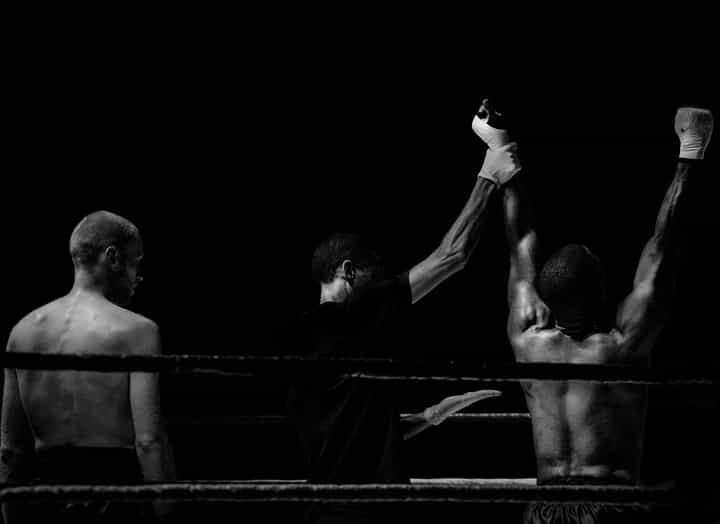
Image from Pixabay
So we can say that it depends on how you look at the failure itself?
Elliot Roe: Exactly. So if the failure becomes feedback and something that provides the information of your weak points and where to work, you're not failing.
You're just on this journey, and you're collecting more information on the way.
The issue is, most people think in much shorter timeframes.
If they take a shot at higher stakes and fail, they do not ask themself what they could learn from that, what they can change, or what they need to improve.
If you say OK that is fine, I need to work on this, and then I will try again, and you do it.
With procrastination issues oftentimes, it's exactly the story that I've described that comes up during the sessions. An awareness of that can help you start to solve it.
Ask yourself, do you really need to be scared of failing? Sometimes just asking yourself that question will be enough to drive you to do your sessions.
But if it's paralyzing you, if it costs you a lot of volume or a lot of study time, that's the sort of thing where I'd say speaking to the specialist on this is probably financially sensible.
Because if you miss playing a couple of sessions per week, the compound of that is enormous. You will slow down your progress, poker bankroll building, and even moving up the stakes, so it costs a lot to be missing your sessions.
So if player identifies that they have such issues and can't solve it themself, they can contact you to sort it out?
Elliot Roe: Yes, I help players with these issues.
However, it only really makes sense to work with me if you're playing nosebleed or very high stakes.
But I do have other hypnotherapists that I've trained specifically around poker, which I could recommend you to. So if anyone wants to reach out, just send me an email on my website.
I believe that removing procrastination can help many players perform better, but that is just one piece of the puzzle, and players have to deal with many issues along the way.
I recently joined your “A-game masterclass” (you can check it here) on Run It Once and was amazed by all of the content.
Before seeing your course, I thought I was taking poker very seriously, but I found so much more room for improvement that I was amazed. One thing that helped me a lot was building a proper sleep routine. Can you talk a bit about that and share a few tips in regards to optimizing energy level and why that is important?
Elliot Roe: I believe that energy is incredibly important with poker, and it is one of the bigger issues for most.
As you say, we have A-game masterclass on RIO, and we have whole sections on really just how to manage your own energy. There's a science to it.
We have videos from doctor Bruce, who is known as the sleep doctor in America, and you get to see a seminar about optimizing sleep, getting used to different time zones, resting efficiently, and things like that.
But really, there are some quick tips that everyone can implement.
For example, the temperature of your room should probably be lower than you expect.
Typically, people sleep best if it's 67 to 69 degrees (19-21 °C) in the room, but most have the temperature of their house higher than that.
And that directly impacts sleep quality.
Also, making sure you don't have the screen time before you go to bed is very important and can have a massive impact on the quality of your sleep.
I noticed that, as well. After enrolling in your course, I removed my screen time at least an hour before going to sleep, and it helped not only with the quality but also with falling asleep a few times faster.
It took me a lot of time for me to fall asleep before because I used to think about my day, and now it‘s gone, so I just love it!
Elliot Roe: It's huge, and it makes sense because we're designed like that for the last many thousands of years.
As the sun goes down, we get tired, and then the body needs to sleep, but the blue light from screens, tells our body it's still daytime.
These things have only existed the last 20 years, real handheld screens, maybe just 10 years, so evolution hasn't taken into account for that.
And there are loads of other tips around that, even with the sleep.
You meant to have some level of activity throughout the day since some kind of exercise is vital for energy management.
I've seen many poker players who significantly increased results by going from sedentary to doing a small amount of exercise every day.
And it's improved their focus, their sleep, their moods, the way they behave around others, their confidence levels.
It's just something to be aware of if you are one of the players who are at home and rarely leaves the house, take it seriously. There's a reason why virtually everyone in the high-rollers is in great shape.
Everyone takes it seriously, guys have personal coaches, they are working out and eating healthy as well.
It's not that it will suddenly make you a great poker player, but if you have two players who skill levels exactly the same, but one of them exercises, it simply means their energy lasts longer. At the end of the session, they're going to have a significant edge.
What does it mean for me to be slightly sharper on the final table? Well, the difference between first and fifth is an awful lot. So it's those sorts of things over the year that add up to the big edges.
I assume this also correlates with concentration? Many players can perform great at the beginning of the session but then loses focus and starts making poor decisions. Is that too related to energy?
Elliot Roe: Yes, it‘s just the way that your body is working. So if you become more efficient, you'll be able to focus for longer, and you will be burning less energy.
You can clearly see this is you play live poker as you go through the day, the guys who are the least healthy tend to struggle much more after the dinner break. And it's something that you'll see at the tables.
Players who are in great shape typically doesn‘t have the same problems, and these small edges add up if you play a lot of poker. All of this starts with building proper habits and maintaining your energy level.
If we go all the way around keeping the energy, it is also important to start playing when you feel great and have enough power for your session.
But I know many players struggle to identify when to quit their session and lose a significant amount of money not being able to do identify when to stop playing. Can you share your thoughts about that?
Elliot Roe: I like players to actually test the amount of time that they're playing and see when they are starting to lose their focus because that could be very different for various players.
So often, for online cash game players, it might be two hours session and then 30 or 40 minute break following by another session and another 30 minutes break.
For a lot of online cash game players, it seems a viable approach and routine.
When it comes to live players, there's always this temptation to play longer than you planned because games seem too good to stop playing.
Often after a certain number of hours, there's a big drop in the level of focus, and that means your edge probably isn't as big as you thought.
Sometimes you're getting fresh players turning up, which further decreases your advantage at the table.
I know a number of people who set their alarm for 3:00 a.m. during the WSOP series in Las Vegas, they wake up at 3:00 a.m., and they go to the tables to join the tired players because of the edge that gives them.
So what I recommend for life players is to set your alarm on your phone at eight hours, and then make it ring after every 30 minutes to evaluate your play and table conditions.
Ask yourself if this is still the game you should be playing right now.
Basically, having the alarm clock going usually keeps people mindful enough that they assess their play, which allows them to step away from the table with more profit than if they end up staying till 5:00 in the morning and then destroying their profits.
Also, I just want to point one more thing out.
You'll see guys staying in games once the „target“ already left. So they're in a great game, but the weakest player leaves, which is why it was a great game, and they find themselves staying on for another couple of hours playing with the regs.
This happens a lot, and this is why it's so essential to regularly assess if you are still playing in a good game.
Thanks, this is an amazing tip for live players. Do you think there are other differences between online games and live in regards to the mindset?
Elliot Roe: I think a lot of online players struggle when they switch to live because they're not used to social interaction.
They're not used to the person staring at them, and that can be quite intimidated in some situations, so it can definitely be a factor if you are switching from online to live.
Another thing is if you will switch from 10 tables online to playing one table live, it is going to be an entirely different game.
Something you have to be aware of is the boredom, and I think it's something you just have to get used to.
At the very beginning, just get used to sitting at the table and see how long you can keep the amount and be honest with yourself.
So even if you're a high stakes player sitting down to play live for the first time, it makes sense to play lower stakes, even 2/5, to find out how long you can play good live poker and keep your focus. So that when you jump into the high stakes, you know your boundaries and what to expect.
That's a good tip when you're crossing from online to live games. But what about preparation? When you play online it is quite easy because you can control your environment, you turn off all distractions, mute your phone, take a few minutes to warm up, and that's it.
But it's a different story in the casino. You have to go there, and you find yourself in a noisy environment, so maybe that requires something extra?
Elliot Roe: Well, I always recommend people use the audios and the warm-up mp3s before they play. So a lot of my guys, when they drive to the casino, they'll sit in the car and listen to the audio before even entering the casino.
But it's also the sort of the other preparation is making sure you have water with you, making sure all of those alarms are set on your phone before you go to the casino.
As we said before, you want to be realistic about the games that are running and also not shy about leaving the game if it's not profitable, especially if you're in a place like Las Vegas where there are lots of games running in lots of casinos.
If you played for a couple of hours and realized there's no money in the game, go and try somewhere else.
There's no point in sitting in a game if it is not profitable anymore, and prober table selecting is one of the best skills you can develop.
Anything else you can name that could be holding players back to make that last step and reach their full potential or even world-class level?
Elliot Roe: I honestly believe it's that self-sabotage I was describing earlier, and I think that's why I've seen so many clients who've worked with me go from having never won a big tournament to winning everything.
And it's not just poker, the same could be said about professional athletes, traders, and business people.
I see the same thing where people allow themselves to reach a certain level that they're comfortable with, and then they end up hovering around that level.
One common stop is the hundred thousand dollar mark for a poker bankroll. So many players reach a hundred thousand dollars, and then for the next three or four years, they either go to 110, or they go to 90. But that's it.
They just stay within this because they got sort of internally set limits on the amounts they want to have or the risk they want to take.
And they're in that comfort zone that I was describing earlier, where the subconscious just wants to keep you comfortable and safe. And if you've got a hundred thousand dollars, you're comfortable and safe.
It doesn't like you pushing past that point because that opens you up to risk.
So usually there's some level of self-sabotage where procrastination kicks in, then distractions kicks in, then you don‘t put enough effort into game selection, because you are already making „enough“ money.
All of those things make you lose the edge, and you just don't make as much money as you could.
Does this also affect motivation? I am quite sure that everyone who reaches the top level in any field is very motivated individuals.
I have many students asking how to keep the motivation for longer, and I am not sure how to answer that question in the right way, so maybe you can share your insights on how to keep motivation in the long-run?
Elliot Roe: It‘s about shifting who you think that you are and what your values are as a person rather than following the pack, expecting the passion that you start with.
So let's say you start poker, you're going to be comfortable playing stupid hours and studying all day because it's all exciting and new.
Then you go through that process multiple times in your career as you change games, or move up the stakes, but that's the passion faze and it's always short-term
What you really need is to have a vision for who you are and understand the values of how you see yourself as a person and as a poker player.
Then you just have to follow these values, and it will lead to success.
So if you start viewing yourself as someone who wants to be elite, you will be willing to put in the hard work even when you don't feel like doing it, because that's one of the things you value.
It's all about like this idea of having a reason for why you want that.
So why do you want this in your life? Why do you want to be an elite player? Is it to help your family? Is it because you love the competition?
You have to identify what's drawing you to that and then use that as the motivation to drive you forward.
It is difficult, and no one can sustain the passion faze indefinitely. So there's nobody who feels like studying every single day, all day, forever. It just doesn't happen.

Image from Unsplash
How the whole “enjoy the process” stuff plays a role in this picture? If someone starts to lose their motivation, can they regain that by finding something joyful in the process?
Elliot Roe: I think people can, but you have to work hard to try and make it enjoyable again.
You have to think about what you enjoyed when you first started the game.
What was it that drew you to poker? Was it the competition? Was it the opportunity to make money? Was it because you loved the mass of the game?
Then, there is also a phase where some people say that they genuinely don't enjoy poker anymore, and they want to be doing something different in life.
If you've reached the stage where you've said, I don't see myself as somebody who wants to be an elite poker player and want to do something else, in many cases, it can be time to leave the game.
Because if you truly don't enjoy poker, you stop studying, and you stop taking it seriously, then there is no way to be successful, and you will just damage your bankroll.
I agree, probably there is no way around it. So till now, we covered a ton of stuff, but one last thing I want to ask is about the optimal path of improving the mental game if you are just starting with this topic. What is the most efficient way?
Elliot Roe: From the mental game side, read the available books. I don't yet have a book out, but you should read all of the books on the subject.
I liked Jared Tendler's, Tommy Angelo's, Tricia Cardner's books, all of them are good. I would read all the books on this important subject firstly because it's a very cheap option.
The other book, which isn't a poker book, but I always recommend “The Art Of Learning” by Josh Waitzkin. That is the best poker book ever written that doesn't mention poker.
Then, I would download my App Primed Mind. You can try it for free, and then if you decide to pay, you get more content, but you can start working with it for free and see everything for yourself.
I also have my A-game masterclass on Run It Once. That's at the thousand dollar mark, but I believe you can pay for it with some sort of payment option that makes it monthly payment. That course gives you an entire breakdown of precisely what you need to do to become a high-level professional fundamentally.
It's ridiculously comprehensive. On top of that, I've interviewed a good number of the best players in the world on their mindset, and they talk through how they think about the game and how they work on it.
Make sure you go through all of those videos if you do buy that course, and that will help you to learn from home and put in a large number of hours of study on your games.
One more thing we offer with that course is once a month Q&A call with me for members inside. We do live interaction where I directly answer your questions and help in any way I can.
Yeah, I can double down on that. This content is so amazing that when I know what is inside, I would give that thousand USD every single day. However, when you are deciding to invest that money, you do not know what to expect, so you can check out my review of A-Game Masterclass to get all your questions answered and see what is inside.
Elliot Roe: Thanks. So I would say you want to do these things first, go through a comprehensive course, and then it's a good time to reach out.
As I say, I can find people to work with you where the price point isn't as high as mine, but it still makes sense to have done all of the work that you can yourself so that you have an idea of what your mindset issues are.
Because as you go through a course as comprehensive as mine, you might find you have mindset issues that you didn't even know you had.
It is worth putting that effort yourself first so that you can make the most out of working with the coach.
A bit like if you were learning poker strategy. It makes sense to at least watch videos, read books, and join a training site before hiring a coach because you're past that very basic stage.
Okay, thanks for these amazing tips and making this happen, Elliot!
If you are interested in an amazing content Elliot Roe mentioned in this interview, you can reach him on his site, find Primed Mind App here, or join his A-Game Masterclass, to learn how to approach your game as a top-notch professional.







